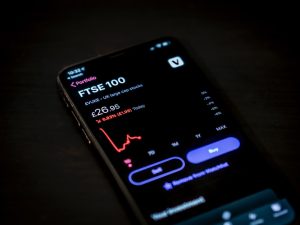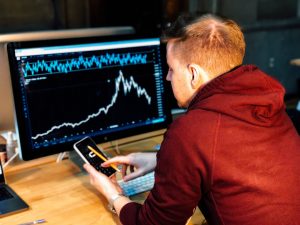Forex trading, which stands for foreign exchange trading, is a decentralized market for buying and selling currencies. It is the largest financial market in the world, where traders and investors exchange currencies for various reasons, such as business transactions, tourism, and speculation. In order to participate in forex trading, traders must understand the various terms and concepts involved, including the EC.
The EC, or the exchange commission, is a fee charged by forex brokers for executing trades on behalf of their clients. It is a small percentage of the total trade value, usually ranging from 0.1% to 1%. The EC is a source of income for forex brokers, who offer their services to traders and investors looking to participate in the forex market.
The EC is an important consideration when choosing a forex broker, as it can affect the profitability of trades. Some brokers charge a fixed EC for all trades, while others may have a variable EC, which can depend on various factors, such as the currency pair being traded, the volume of the trade, and the time of day. Traders should choose a broker that offers competitive EC rates, as well as other features such as security, customer support, and trading platforms.
In addition to the EC, forex traders must also consider other costs involved in trading, such as spreads, swaps, and margin requirements. The spread is the difference between the bid and ask prices of a currency pair and is also a source of income for forex brokers. The swap is a fee charged for holding a position overnight, while the margin requirement is the amount of money required to open a trade.
Traders should also be aware of the risks involved in forex trading, including market volatility, leverage, and counterparty risks. Forex trading can be highly volatile, with prices fluctuating rapidly and unpredictably. Leverage, which allows traders to control larger positions with a smaller amount of capital, can also amplify losses as well as profits. Counterparty risk refers to the possibility that the other party in a trade may default on their obligations, such as failing to deliver the currency or pay the agreed-upon price.
To mitigate these risks, traders should have a solid understanding of the forex market, develop a trading strategy, and use risk management tools such as stop-loss orders and limit orders. They should also choose a reputable forex broker with strong regulation and a proven track record of reliability and security.
In conclusion, the EC is a fee charged by forex brokers for executing trades on behalf of their clients. It is an important consideration when choosing a forex broker, as it can affect the profitability of trades. Forex traders should also be aware of other costs involved in trading, as well as the risks and challenges of the forex market. By understanding these concepts and developing a solid trading strategy, traders can increase their chances of success in the forex market.






